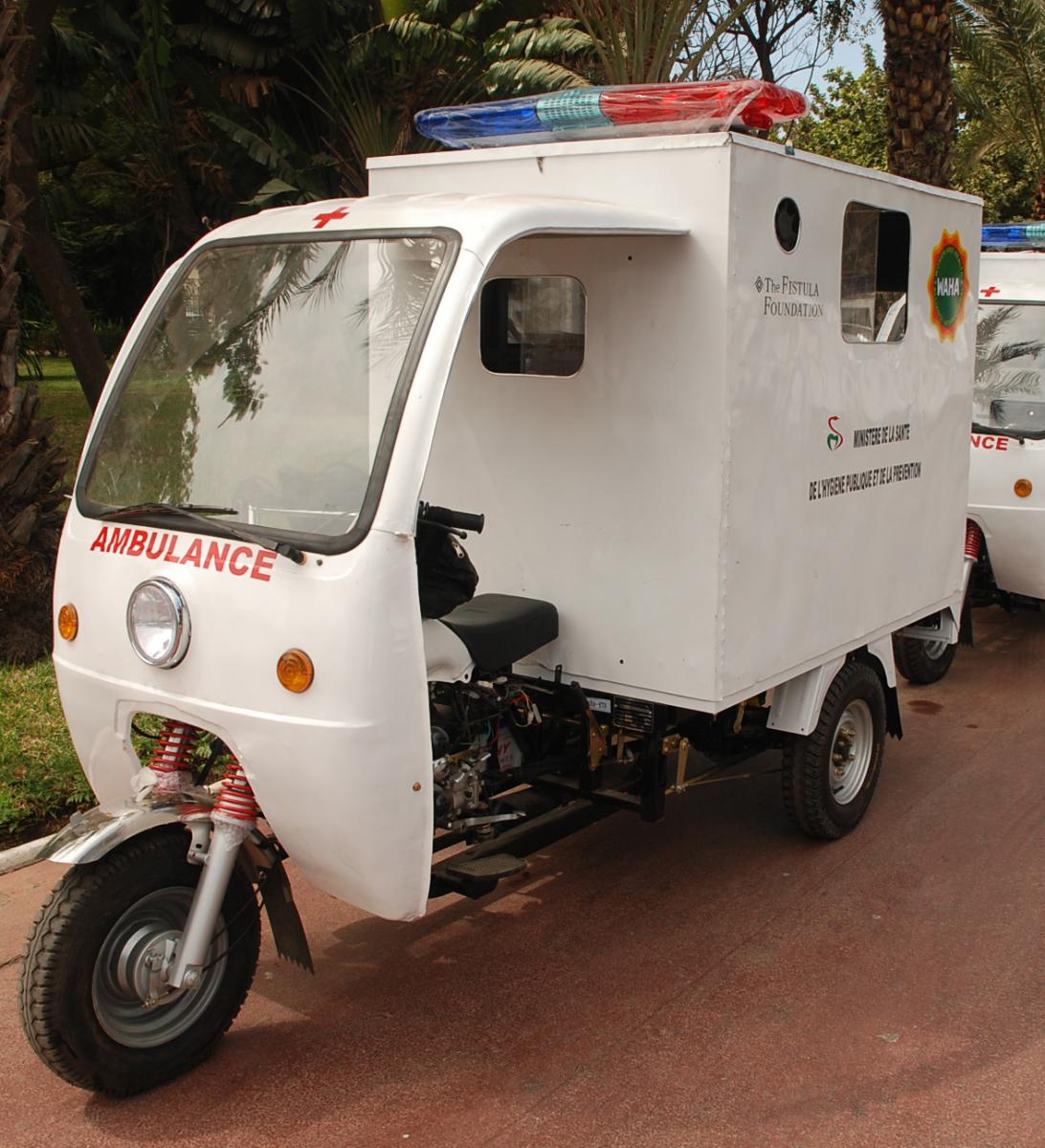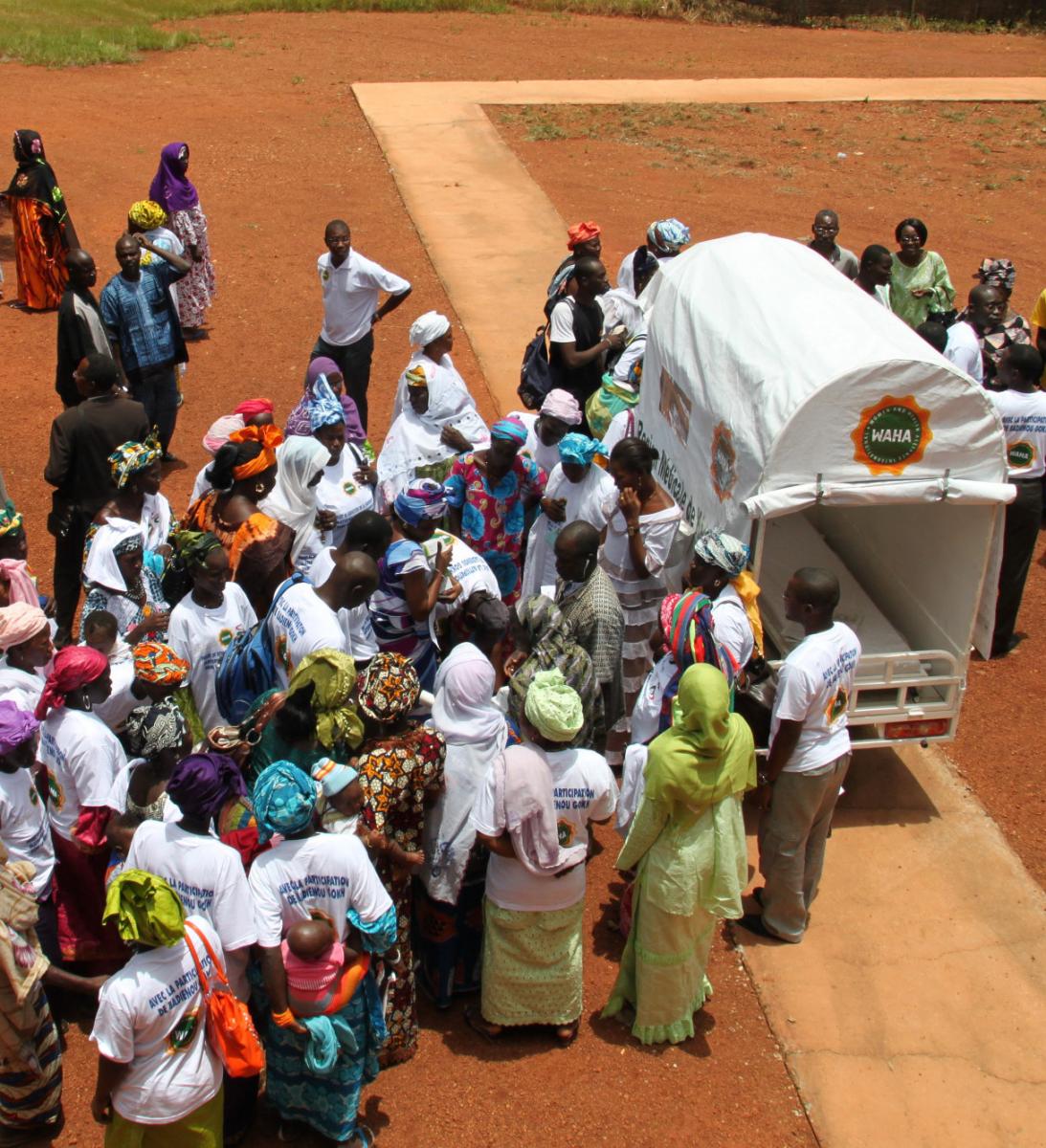Maternal mortality is, even in the 21st century, one of the world’s major health threats: every 24 hours, approximately 800 women die as a result of (often entirely treatable) complications related to pregnancy and childbirth. A staggering 99% of maternal deaths occur in developing countries, particularly in sub-Saharan Africa and South Asia (according to the World Health Organization). And for every woman who dies, approximately 20 more women will suffer from a chronic disease, infection, or injury owing to childbirth. Tragically, many of these women—who typically suffer from obstetric fistula or other debilitating post-partum conditions—have little choice but to suffer in silence. Some are subjected to the further pain of stigmatization within, or even isolation from, their communities.
|
|
Under the fifth Millennium Development Goal, the international community pledged to cut maternal mortality by 75% by 2015. The rate has substantially decreased, but an unacceptably high number of women are still at risk. Maternal death crushes families. On a wider scale, its persistent prevalence renders whole communities increasingly vulnerable as they continue to lose the women upon whom they fundamentally depend, both as mothers and as the primary participants in subsistence agriculture.
A significant contributor to both maternal and child mortality is teenage pregnancy. An estimated 16 million girls give birth before the age of 18 every year worldwide, with the majority living in developing countries. Teenage pregnancy not only places the young mothers at a higher risk of maternal death, complications and disability, but also endangers the health of their babies. The World Population Day, an annual international event held on July 11th to raise awareness on global population issues, will be focusing on teenage pregnancy this year.
A number of international organizations, national health institutions, and health authorities are combining efforts to combat maternal mortality and morbidity in the most severely affected regions. In this article, W4 spotlights the work of one organization – Women and Health Alliance International (WAHA), which works tirelessly with partners in Africa and Asia to implement innovative and sustainable solutions and increase access to, and raise awareness of adequate maternal and post-partum healthcare.
|
© WAHA, 2013 |
In isolated rural areas, WAHA identified a strong link between the risk of newborn and maternal death and the simple fact of a delay in receiving appropriate care during an obstetric emergency. The great distances between women’s homes and their nearest healthcare facilities have a devastating effect on poor rural women and their babies. Because existing transport facilities are woefully, indeed tragically, inadequate, WAHA has come up with a three-wheeled solution. Under WAHA’s motorcycle ambulance project , a three-wheeler motorbike is used for the emergency medical transfer of the patient along with a health worker and a caregiver (usually a patient’s family member).
WAHA’s motorbike ambulances were piloted in 2010 in communities in the Kedougou region of Senegal, to encouraging results: during the project’s first year, the number of calls for a motorbike ambulance went up from one every 10 days to two every 3 days. 60% of these patients were suffering obstetric emergencies or pregnancy-related complications: thus, the number of childbirths assisted by a skilled maternal health worker increased by up to 40% within one year (as observed in the district of Bandafassi).
|
© WAHA, 2013 |
To ensure smooth running, each Senegalese community appointed ‘community godmothers’, women trained to help coordinate motorbike ambulances in emergency situations (with the help of donated and prepaid mobile phones). Moreover, and crucially, these ‘godmothers’ help raise awareness of safe maternal health practices and act as mentors to pregnant women and mothers.
WAHA’s motorbike ambulance project has already helped to save many lives and its success is radiantly evident. But a lot more support is needed if the scheme is to reach its full potential. Among the remaining challenges is that of recruiting competent and willing drivers in volatile regions, places such as Dadaab (in northeastern Kenya), which is home to one of the largest refugee populations in the world. Here, potential drivers are discouraged by a constant fear of hijacking and kidnapping, coupled with difficulty in finding spare parts for the ambulances in case of a breakdown. To combat at least part of the problem, WAHA is working with the health centres to ensure that drivers are given continual and adequate technical support.
|
© WAHA, 2013 |
Since its inception in 2010, the motorbike ambulance scheme has greatly expanded: to date, WAHA has supplied 186 motorcycle ambulances to rural villages in Niger, Ethiopia, Chad, Kenya, and Somalia. By the end of 2013, WAHA plans to be deploying a total of 429 bike-ambulances across 20 countries, providing rural women and their families with a safeguard against postpartum disabilities such as obstetric fistula and the preventable tragedy of maternal mortality.
To find out more, visit WAHA’s website.
© Women’s WorldWide Web 2013
















